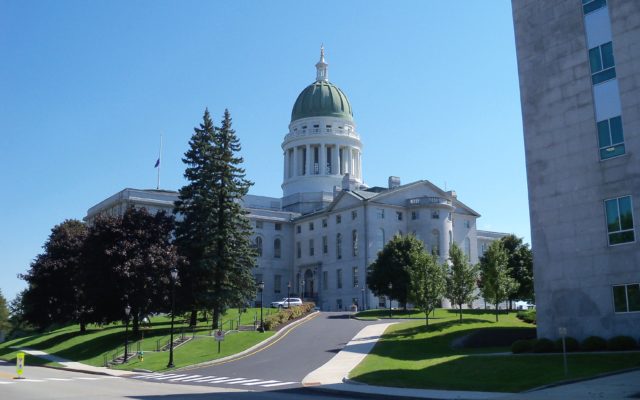
Maine lawmakers approve solar industry-backed tweaks to generous incentives
By Michael Shepherd, Bangor Daily News Staff
AUGUSTA — The Maine Legislature solved a thorny divide over solar policy on Thursday, when both chambers agreed to support industry-backed tweaks that aim to pare back the state’s generous incentives for smaller projects.
The debate over the last few weeks coincided with rate hikes driven largely by the incentives approved by lawmakers in 2019. It was a back-and-forth affair during which the Democratic-led House of Representatives initially approved a rival Republican-led bill on the subject only to see the Senate vote it down in favor of a proposal from Sen. Mark Lawrence, D-Eliot.
On Thursday, the Senate voted 20-12 on Thursday to defeat the bill from Rep. Steven Foster, R-Dexter, that had the support of not only Republicans but also numerous Democrats, manufacturers and Public Advocate William Harwood. Later, the House reversed itself in a party-line 77-52 vote to send Lawrence’s heavily lobbied measure to Gov. Janet Mills.
Among the coalition of Democrats supporting the bill were those who preferred Foster’s version but saw the Lawrence measure as an incremental step, including Rep. Sophia Warren of Scarborough, a progressive who called for a just transition to alternative energy.
“I believe that this can do something to mitigate the costs onto ratepayers,” she said in a floor speech.
Both bills came in response to rising energy costs driven by global pressures and Maine’s generous solar benefits. Harwood estimated the subsidies could cost $220 million a year by 2025 and the costs may keep rising for two decades. Last month, regulators approved an estimated $135.7 million in annual rate hikes that began July 1.
Lawrence’s measure would let solar firms choose whether to accept subsidies while having Maine seek federal funding to boost solar development. Foster’s plan would have allowed the Maine Public Utilities Commission to propose adjustments to subsidies, and it was amended late to increase the size of projects that would continue to get aid under the program.
The adjustments would rein in Maine’s net energy billing program, in which customers offset their electricity bills using the output from small renewable generators.
Both chambers had initially approved Lawrence’s bill before the House reversed course last week and passed Foster’s amended bill by a wide margin. But that proposal fell each time in the Senate, leading him to give a House floor speech on Thursday admitting that the rival bill was the “last bill standing” but saying it would do little to rein in costs.
“Kill this bill and then we can start from scratch to address net energy billing again in the next session,” he said of Lawrence’s measure.
Foster and Harwood have said their bill could cut ratepayer costs by at least 20 percent, while the solar lobby has argued no one truly knows yet how much either proposal could save. Solar interests and supporters of Lawrence’s bill have also said Foster’s plan could lead to loan defaults and less investment in Maine.
The debate has involved a fair amount of lobbying from both sides, with the solar industry using ads to mention former Gov. Paul LePage’s legacy of opposing solar projects while a manufacturing coalition said Lawrence’s bill would only “increase profits for Wall Street.”